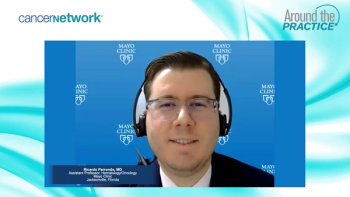
Ricardo D. Parrondo, MD, discusses monotherapy and combination BTKi therapy options for chronic lymphocytic leukemia, noting that the decision depends on patient preferences and disease risk.

Your AI-Trained Oncology Knowledge Connection!


Ricardo D. Parrondo, MD, discusses monotherapy and combination BTKi therapy options for chronic lymphocytic leukemia, noting that the decision depends on patient preferences and disease risk.
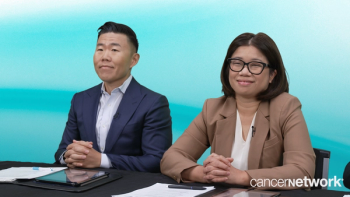
Christina Wu, MB, BCh, MD, discusses BRAF V600E mutations in metastatic colorectal cancer, including the various detection methods, the different classes of BRAF mutations, and the evolution of targeting treatments.
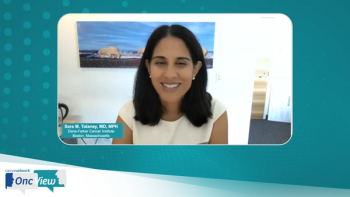
A comprehensive overview of the treatment landscape in early-stage breast cancer, with a focus on CDK4/6 and PARP inhibitors.

Sara M. Tolaney, MD, MPH, discusses the evolving role of Ki-67 and circulating tumor DNA as prognostic or predictive biomarkers in breast cancer.
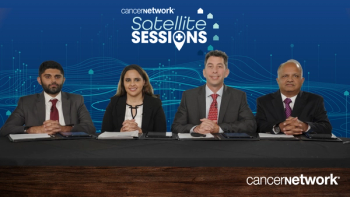
Experts from City of Hope close out their panel on multiple myeloma management by identifying unmet needs and sharing what excites them in the future evolution of the treatment landscape.

The panel shares some personal experiences with treating patients with multiple myeloma with a quadruplet therapy regimen.
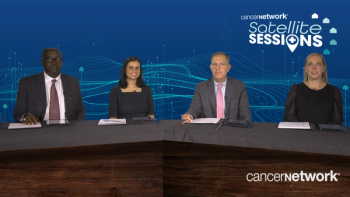
An overview of the RedirecTT-1 study investigating teclistamab plus talquetamab in patients with relapsed/refractory multiple myeloma.

Continuing discussion on bispecific antibodies, attention turns to talquetamab and the MonumenTAL-1 clinical trial for patients with relapsed/refractory multiple myeloma.
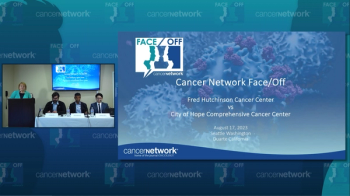
Expert insight into the later-line efficacy and tolerability of olverembatinib, a third generation TKI, in ponatinib-resistant, refractory chronic myeloid leukemia populations.

Leading experts discuss the potential benefits and challenges of using ixazomib pomalidomide-dexamethasone as a treatment option for relapsed myeloma patients, considering factors like efficacy, overall survival, and patient demographics.

Considerations for selecting between ponatinib and asciminib as third-line therapies for CML based on factors such as disease burden, mutations, and patient tolerability.

Rahul Banerjee, MD, FACP, discusses the Alliance A061202 trial, presenting the potential benefits and red flags of using ixazomib-pomalidomide-dexamethasone combination in relapsed myeloma treatment.
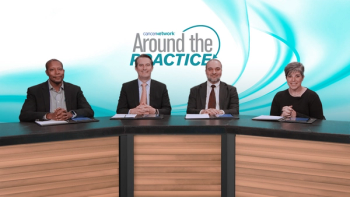
A panel of experts present that case of a 65-year-old woman with follicular lymphoma and discuss potential approaches for treatment in the relapsed or refractory setting.

Expert oncologists discuss the evolving treatment landscape for follicular lymphoma and highlight key advances that have contributed to improved treatment options.
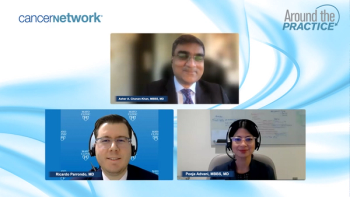
Mayo Clinic experts note that targeted therapies for chronic lymphocytic leukemia are generally superior to chemoimmunotherapy, with treatment choices tailored to patient comorbidities and preferences, and noting that real-world data mostly aligns with clinical trials.

In a virtual discussion hosted by Asher A. Chanan-Khan, MD, MBBS, experts from Mayo Clinic discuss treatment strategies for chronic lymphocytic leukemia, including the role of cardio-oncology and various therapeutic approaches.
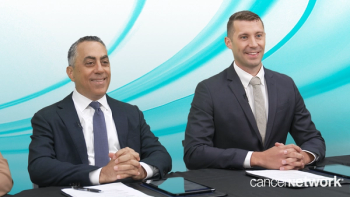
Daniel Walden, MD, presents the scenario of a 66-year-old man diagnosed with BRAF V600E-mutant metastatic colorectal cancer to the expert panel for discussion.
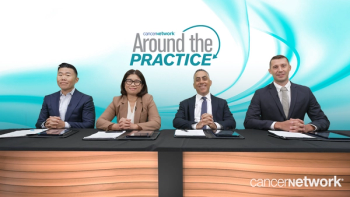
In a detailed conversation, Tanios Bekaii-Saab, MD, Daniel Ahn, DO, and Christina Wu, MB, BCh, MD, discuss various scenarios for treating HER2+ metastatic colorectal cancer, focusing on patient profiling, testing methods, and different sequencing strategies including the use of trastuzumab.

Expert insights on biomarker testing in breast cancer, with a focus on key markers associated with specific subtypes.

Sara M. Tolaney, MD, MPH, an expert breast oncologist, reviews the overall treatment landscape for breast cancer.

Specialists in the field of multiple myeloma discuss bispecific antibodies, with a focus on the MajesTEC-1 study on teclistamab.

The panel discusses how the emergence of CAR T-cell therapy has changed clinical care for patients with multiple myeloma.

Experts explain strategies for toxicity management in patients receiving treatment for multiple myeloma, including monitoring risk of CRS.

Shared insight on the factors to consider when choosing between a bispecific therapy and CAR T-cell therapy for a patient with multiple myeloma.
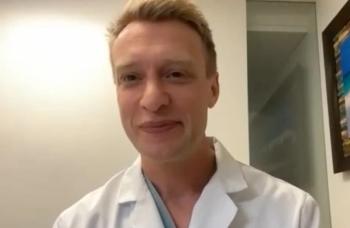
Artificial intelligence programs may help introduce new care strategies that minimize the risk of adverse effects in patients with prostate cancer, according to Wayne G. Brisbane, MD.

Artificial intelligence may help detect tumors both within the prostate and that have spread to areas outside of the prostate, according to Wayne G. Brisbane, MD.

A review of promising results from the ASCEMBL study, highlighting asciminib's superior efficacy, well-tolerated profile, and potential impact on chronic myeloid leukemia treatment options.

Key insights on real-world applications of the REMIX study, which evaluated real-world effectiveness and tolerability of the ixazomib-based regimen in relapsed/refractory multiple myeloma.

A panel of experts discusses the challenges and considerations surrounding cardiovascular risks associated with ponatinib treatment for chronic myeloid leukemia, emphasizing the need for multidisciplinary collaboration and individualized treatment strategies.

Outcomes of the REMIX study investigating the effectiveness and tolerability of ixa-len-dex in real-world relapsed/refractory myeloma patients, exploring progression-free survival, overall response rate, and safety.